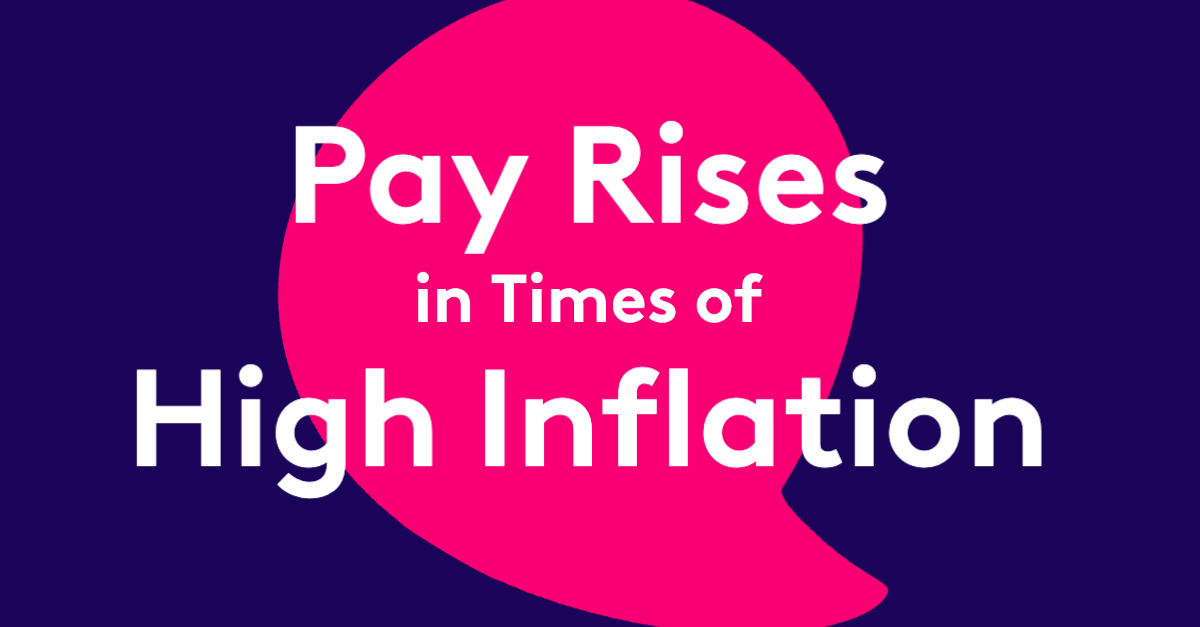It’s pay review time. So you look at labour market benchmarks to work out your team’s pay rises. Then, your employees compare their salary to cost of living inflation and say: “It’s not enough.” Sound familiar?
Or maybe, it’s been a few months since you’ve done company-wide pay adjustments and employees are already asking for more. Or worse: leaving for other companies to get even a small pay bump.
In times of economic uncertainty and high inflation, it’s challenging for employers to meet these expectations.
More often than not, the missing piece of the puzzle is personalised guidance to help everyone make the most of the money they have.
It’s not just good sense for employers, it’s good sense of employees too. Everyone deserves to know the pathway to increasing their pay and rewards – but if employees don’t have a system and plan for managing their money, adding a little extra isn’t going to solve the root of the stress they feel. In many cases, our money can stretch further than we realise – we just need to sit down with someone to build a plan for our money.
As inflation rises and economic growth falters, it’s becoming more difficult to make sure employees are rewarded fairly and motivated to do their best work. Here are five tips for communicating pay rises effectively in times of high inflation.
1. Be transparent about the business reality
Many businesses are looking to strike the right balance between reassurance and realism. It’s important to project optimism about the company’s vision and path forward. But at the same time be upfront and realistic with your employees about the economic climate and the business’ financial constraints.
There are two important things often forgotten in conversations about cost-of-living pay increases. Firstly, that the costs of doing business are also rising. Secondly, that growth is slowing in many sectors across the UK.
So being specific with employees about both of these factors and what they mean for your business will help them see the broader context.
2. Explain how you set pay rises
While the process of setting pay is often obvious to HR or senior leadership, there’s usually poor understanding by the wider organisation. It should be straightforward and easy for everyone to understand.
If possible, break it down into a simple step-by-step process or a formula. At a minimum, you should always explain, how you:
- Benchmark against other similar jobs in market
- Account for company performance and market outlook
- Account for individual performance
- Incorporate employee feedback
This offers an opportunity to revisit your process and to reassure your team that you’re approaching pay differently. For example, maybe your company would never increase pay if the business hadn’t grown by a certain amount. But this year, you’ve decided to increase everyone’s salaries by 3% because of the cost of living. That may not feel like a lot on its own, but it involves a big positive shift for employees in the way you set pay.
3. Show empathy and humanity
Money is an emotional topic for everyone. Pay affects employees’ ability to support themselves and their families and it shapes how they feel about their financial future.
Look for opportunities to show you’ve talked with people across the business – not just made decisions in a distant boardroom. Whether it’s confidentially or in a public forum, you should have clear, open communication channels where employees can discuss pay-related concerns or questions.
4. Reinforce your mix of rewards and benefits
Remember that salary is only part of how employers can reward employees. Consider your other benefits and make sure they are perceived as high value in the current cost-of-living context.
It’s easy for employees to forget about the benefits that you’ve spent time and money implementing. So make sure they’re communicated often. Never show a salary or pay rise in isolation – always reinforce the full range of rewards and benefits that surround it.
You might also take this moment to consider if there are other non-financial benefits to supplement salary. Offer more work-from-home days to help employees juggle work and family commitments or save on travel costs. Or can you provide extra paid holidays?
5. Help employees maximise salary
Many companies find that giving employees access to a money coach helps them more effectively manage and plan their money. Having someone to talk to about money can transform mindsets from ‘spending more’ to ‘spending better’.
Providing access to a money coach can help employers win trust and loyalty by showing that they hear employee concerns and that they want to offer deeper support.
A money coach can help an employee find savings in their day-to-day budget or make better use of their savings and pension so they stay on track for their longer term goals, even when money feels tight.
A version of this article originally appeared on REBA on 06 February 2023.
